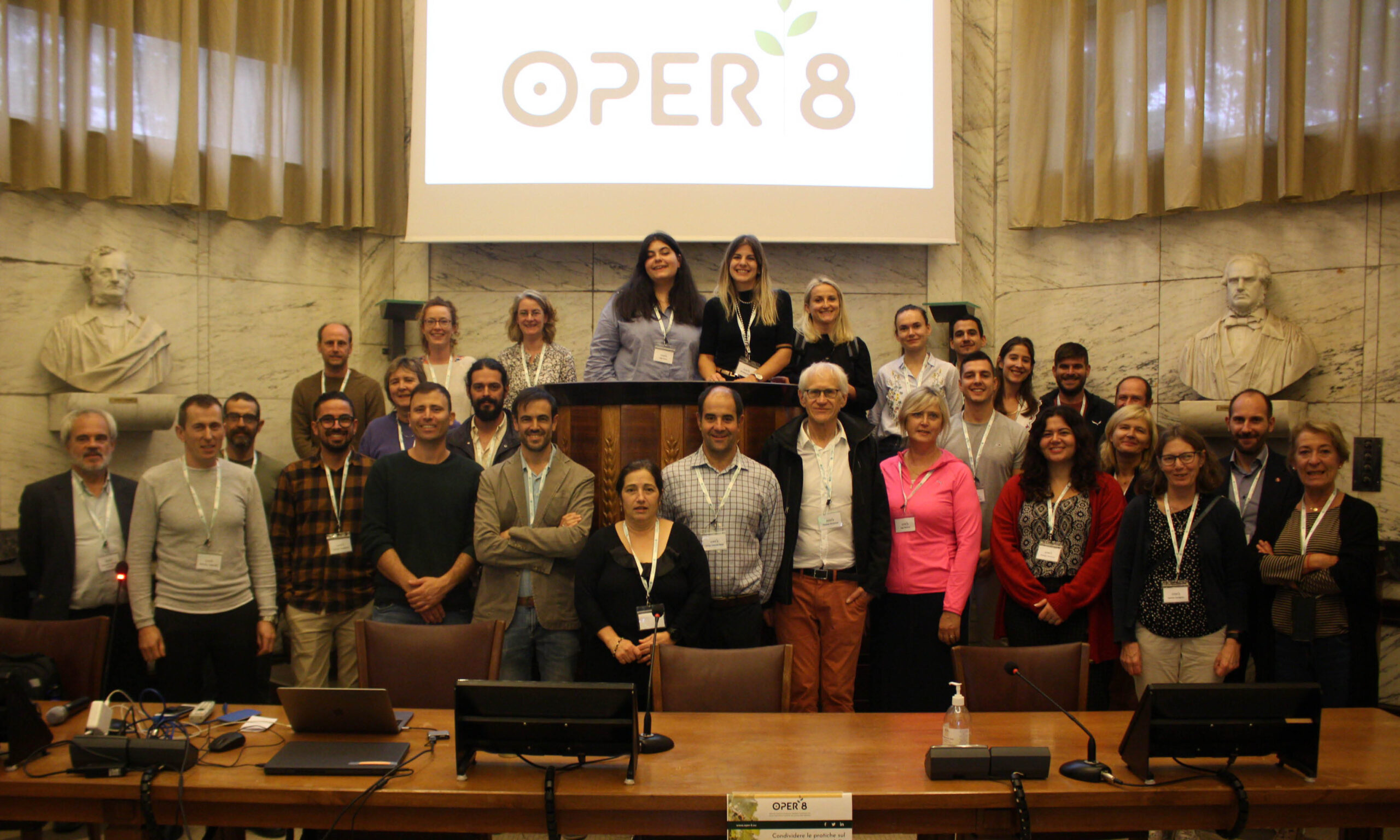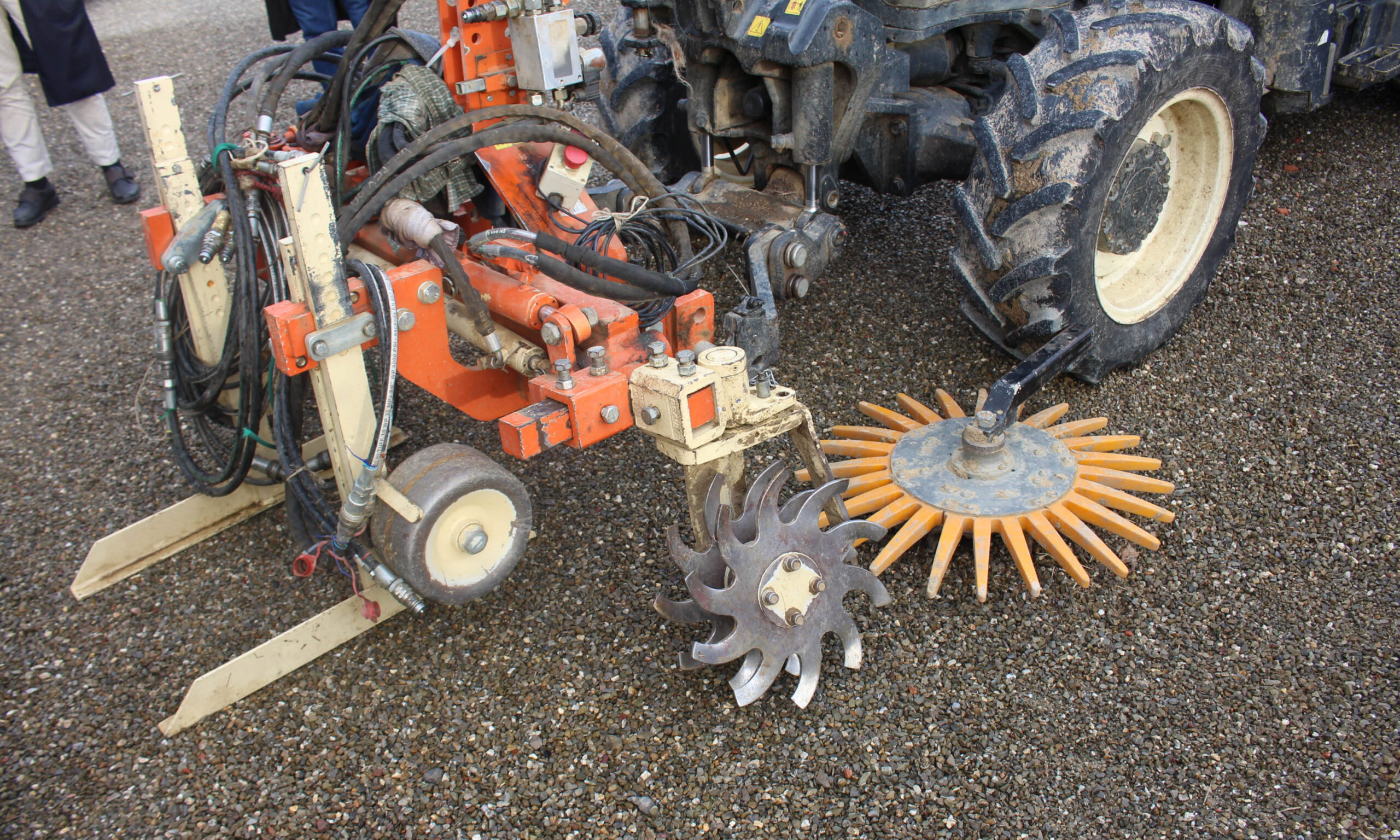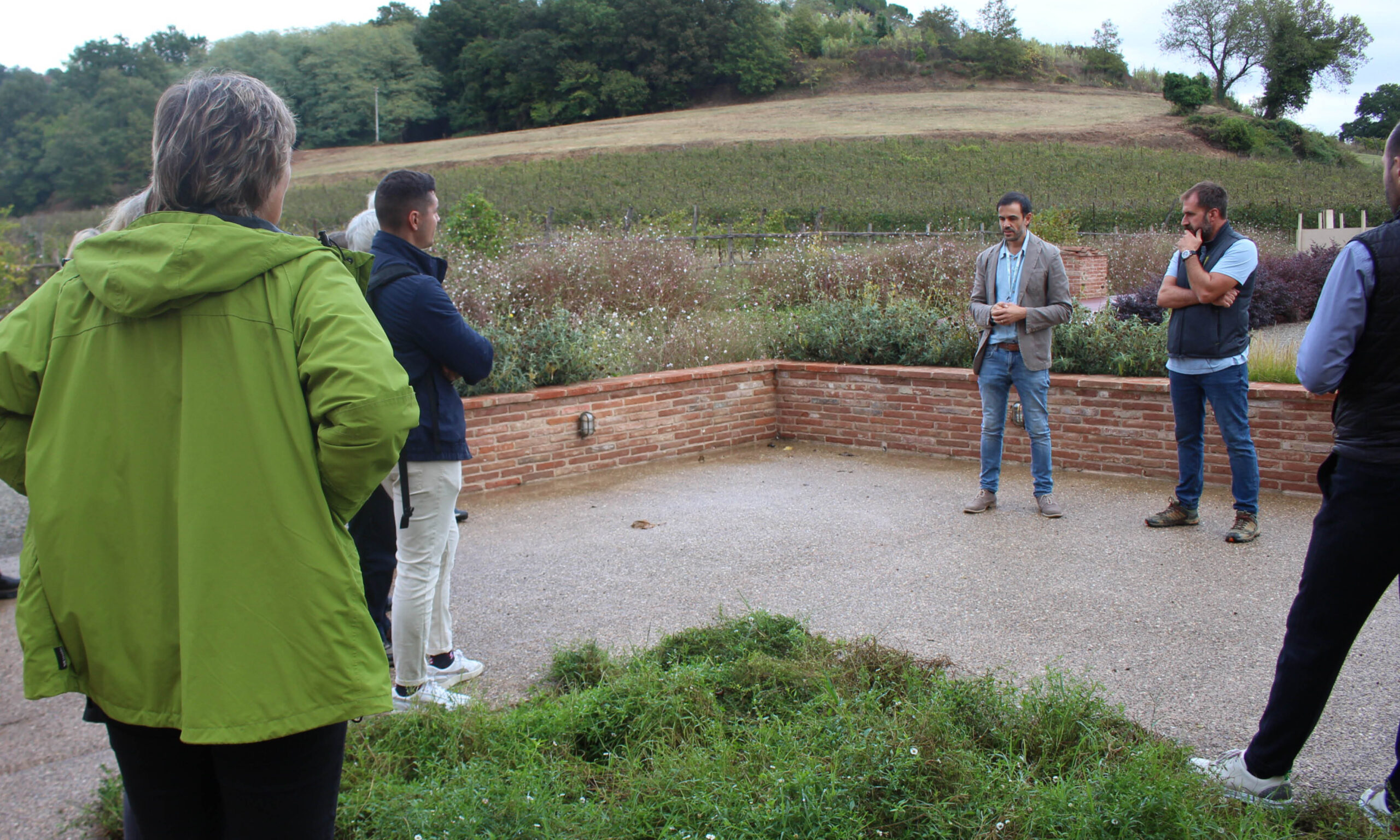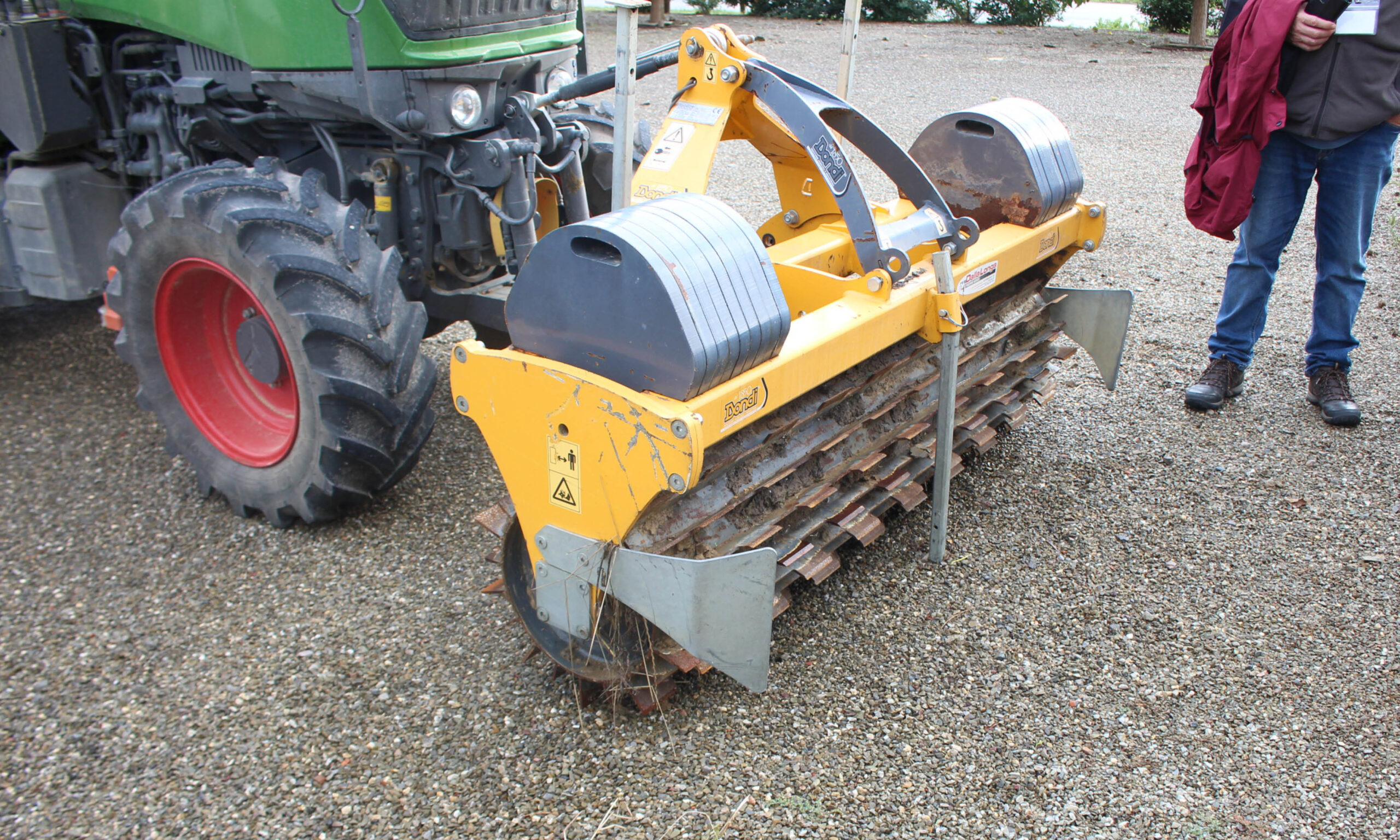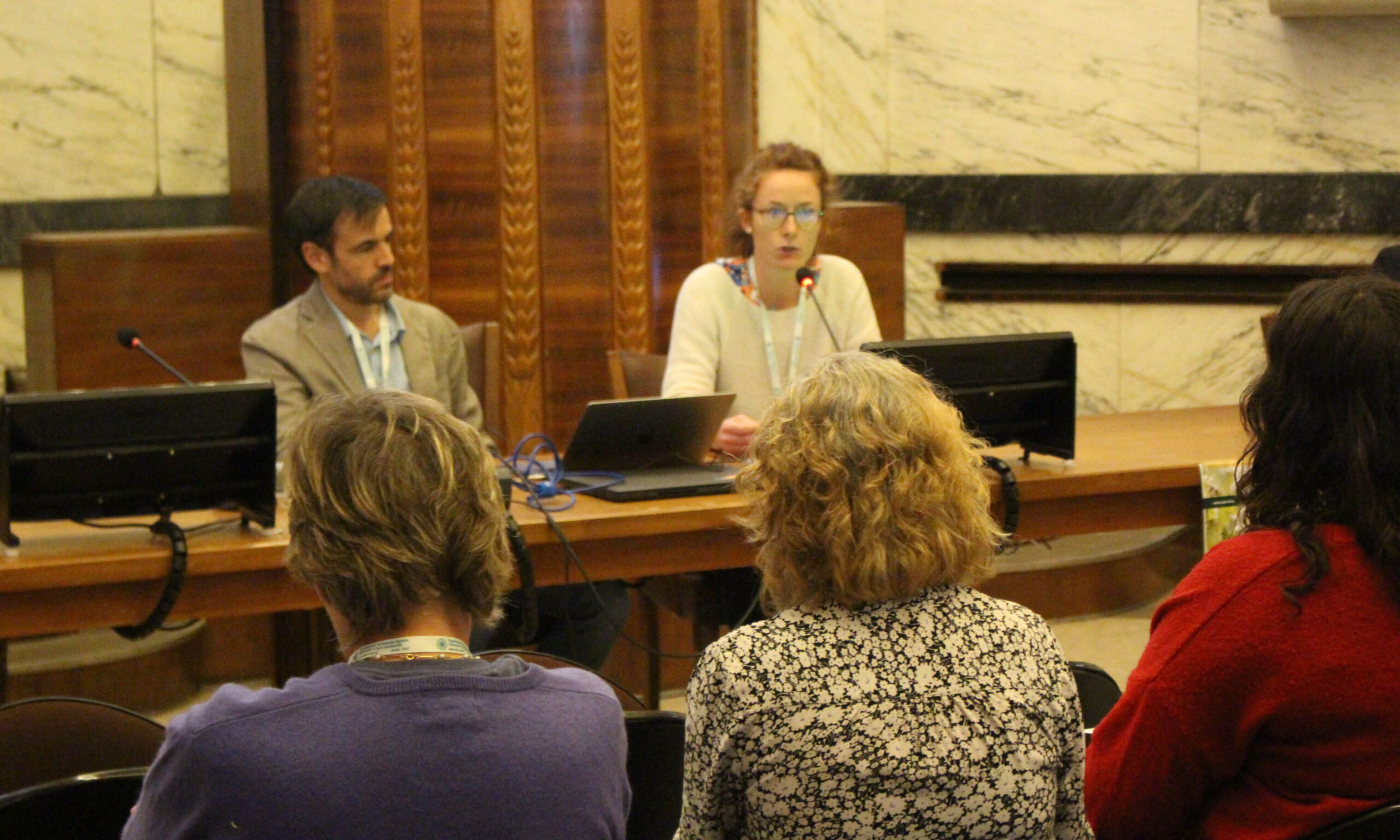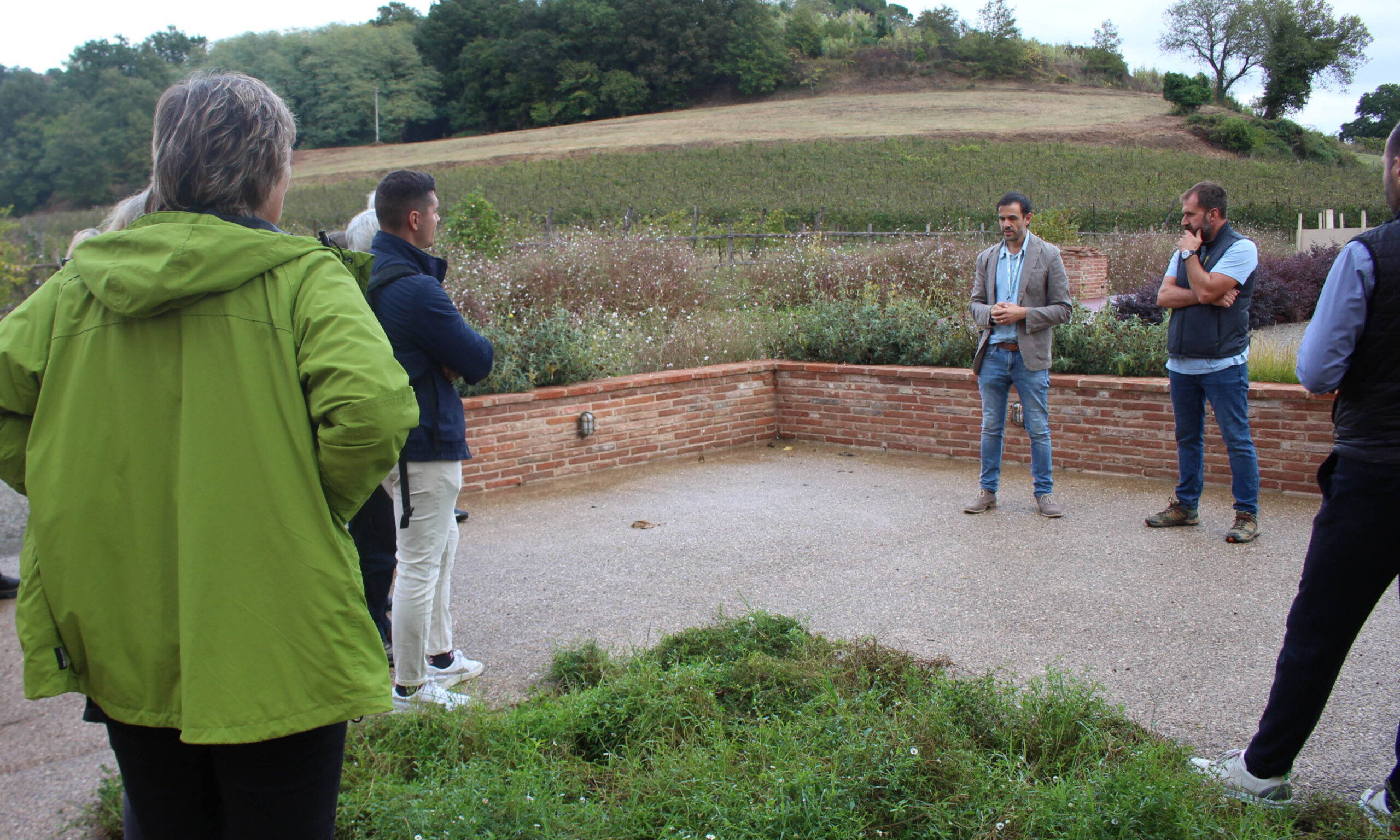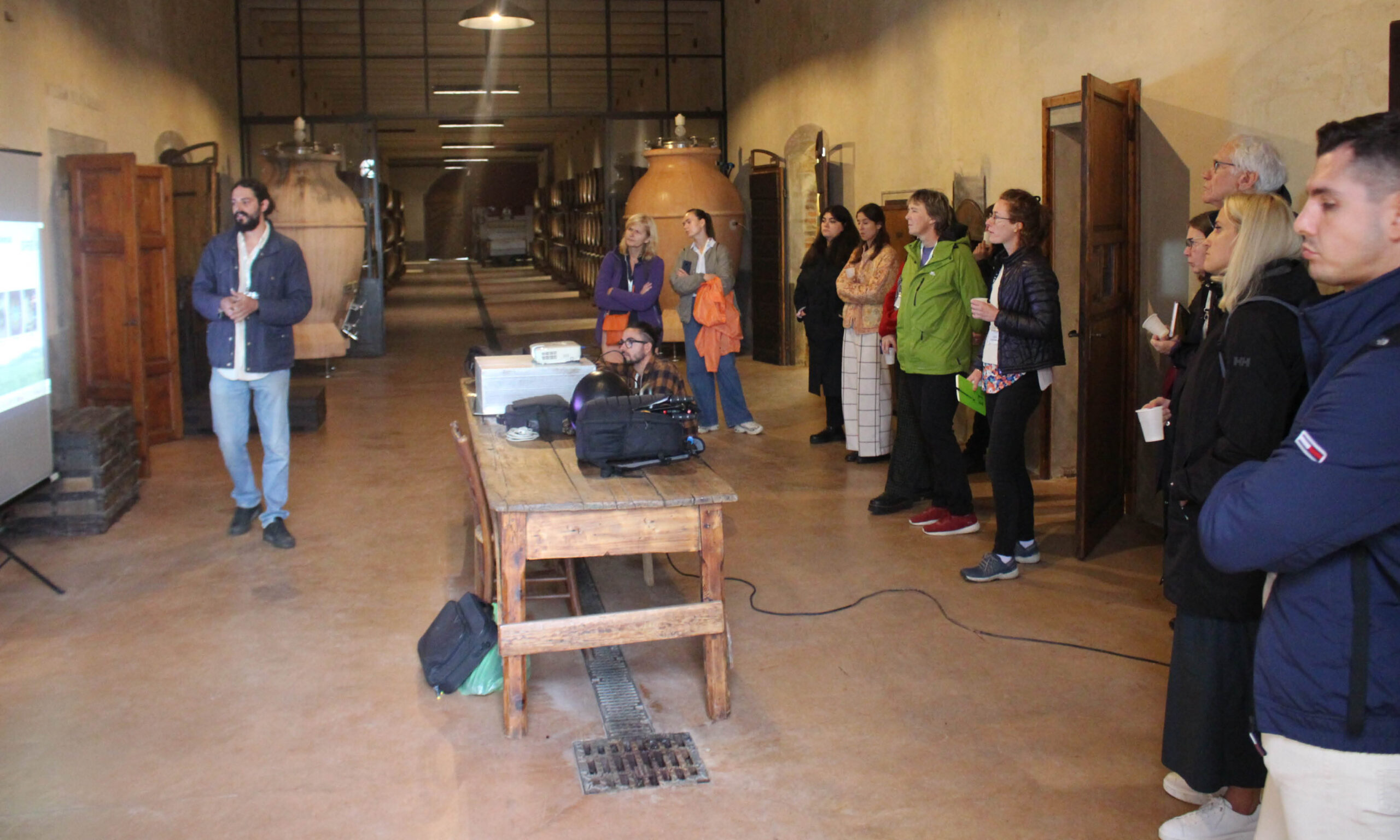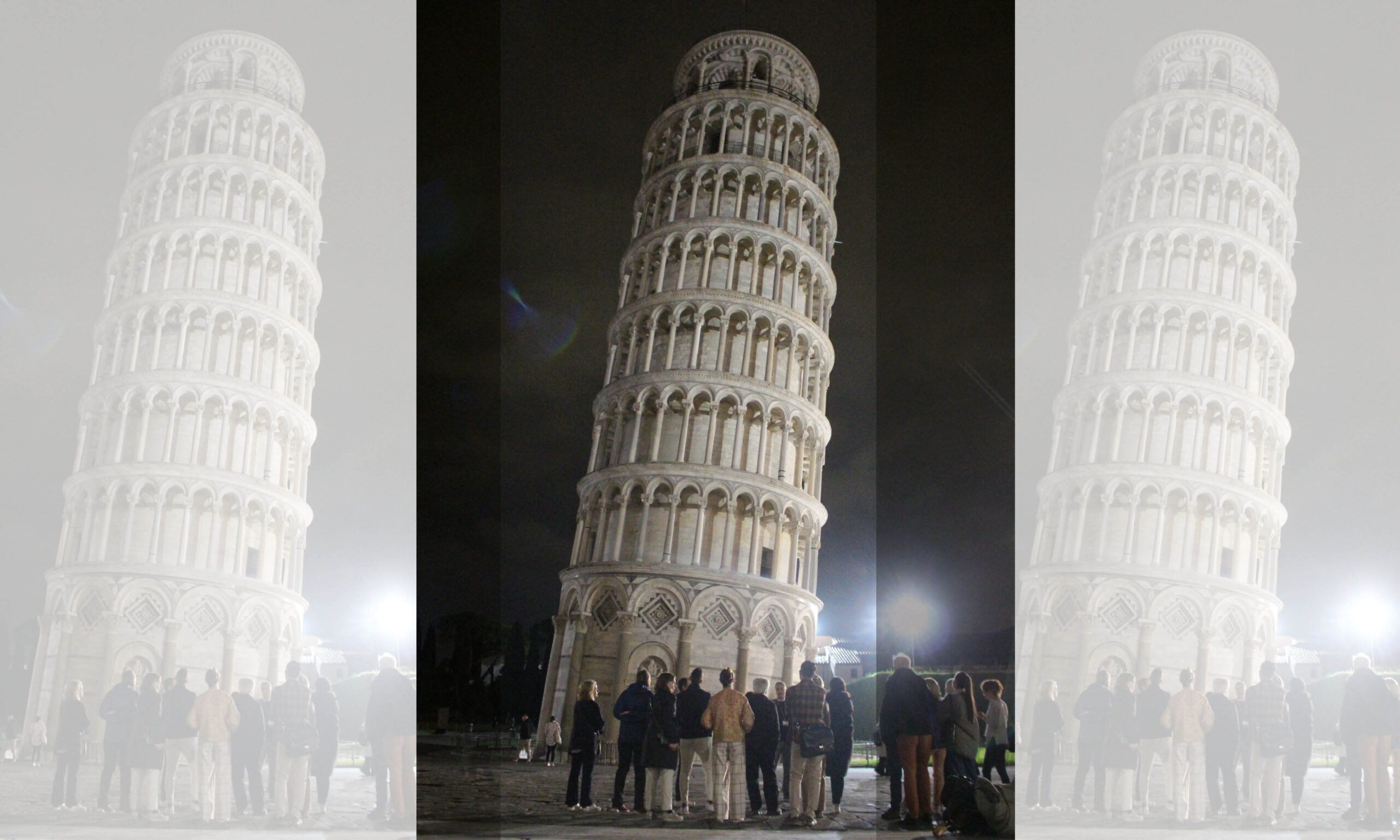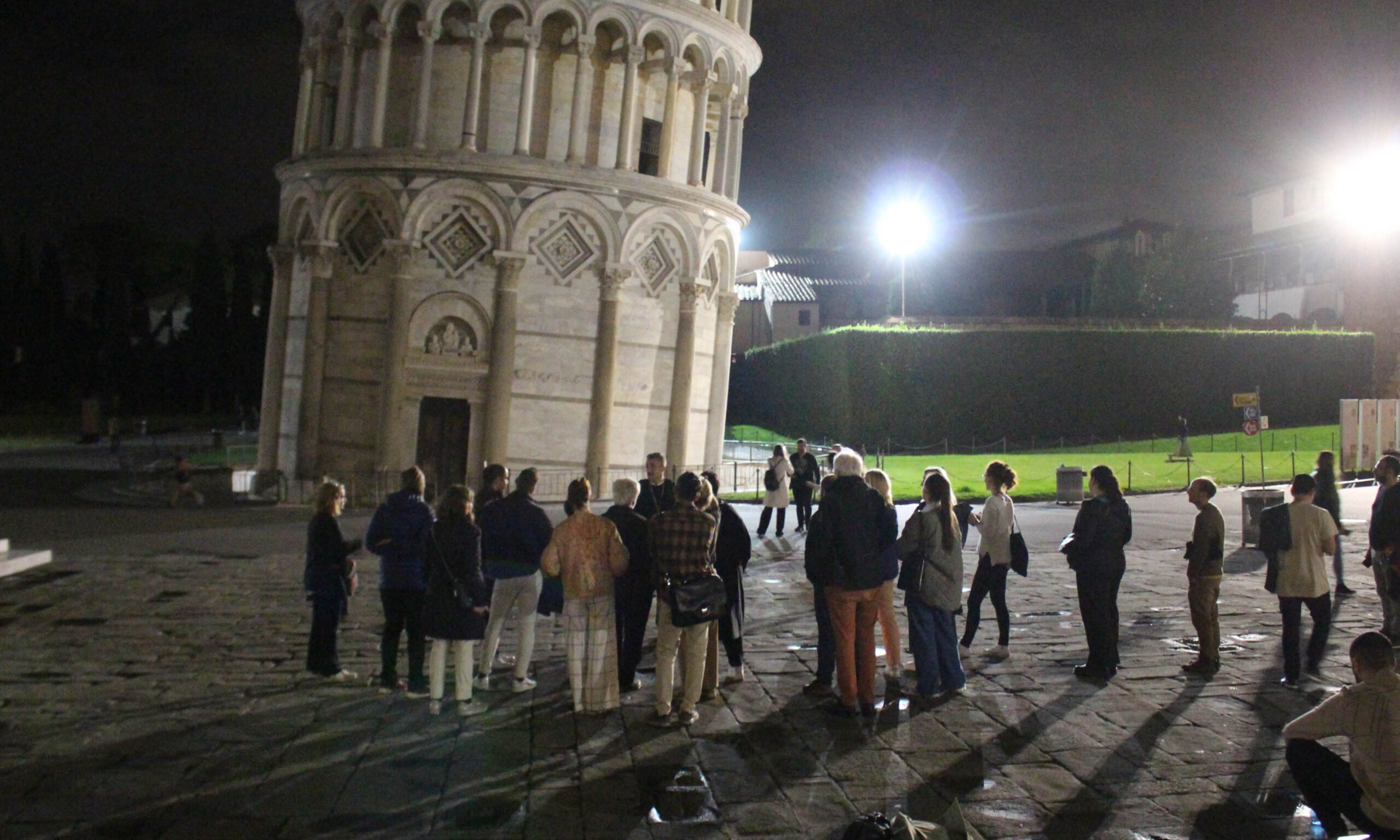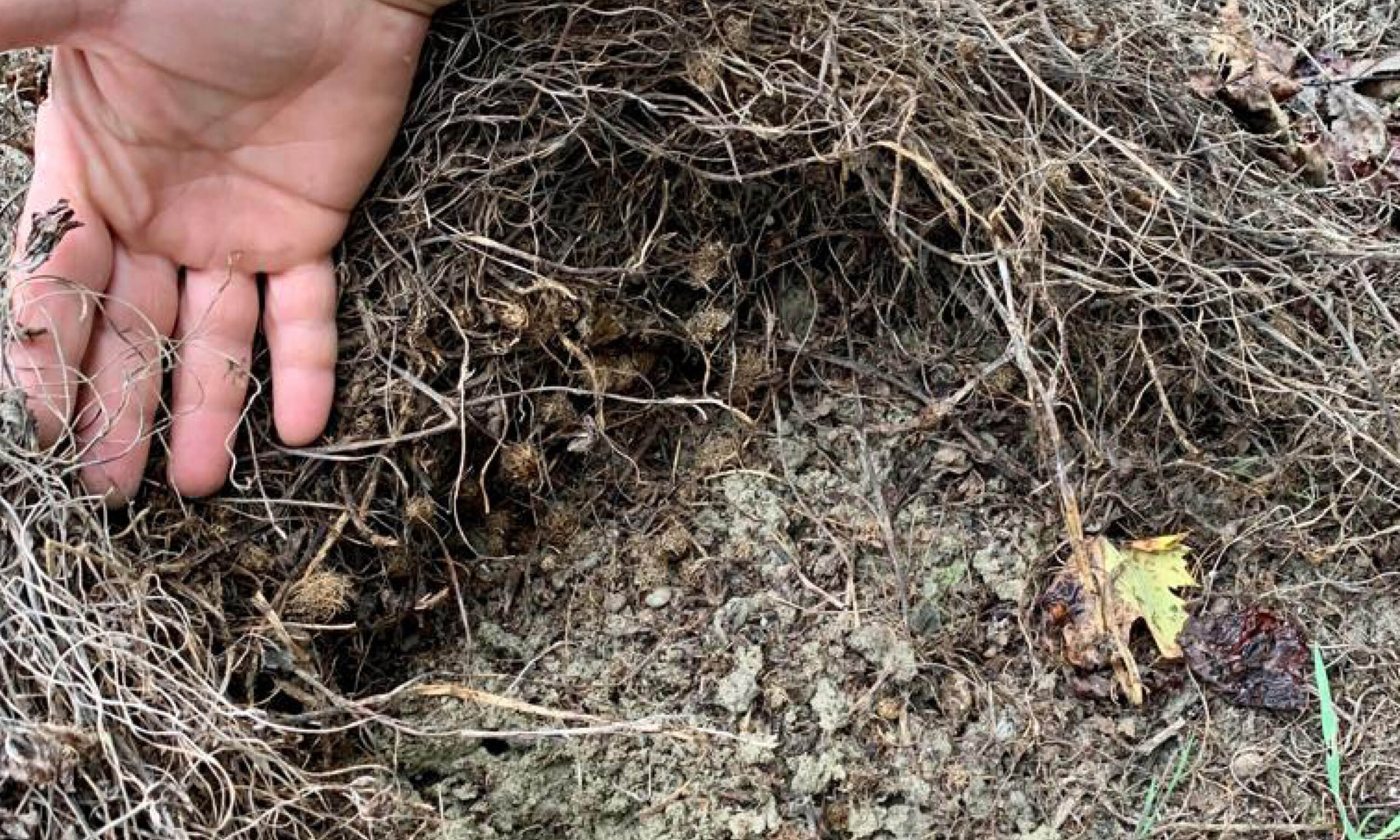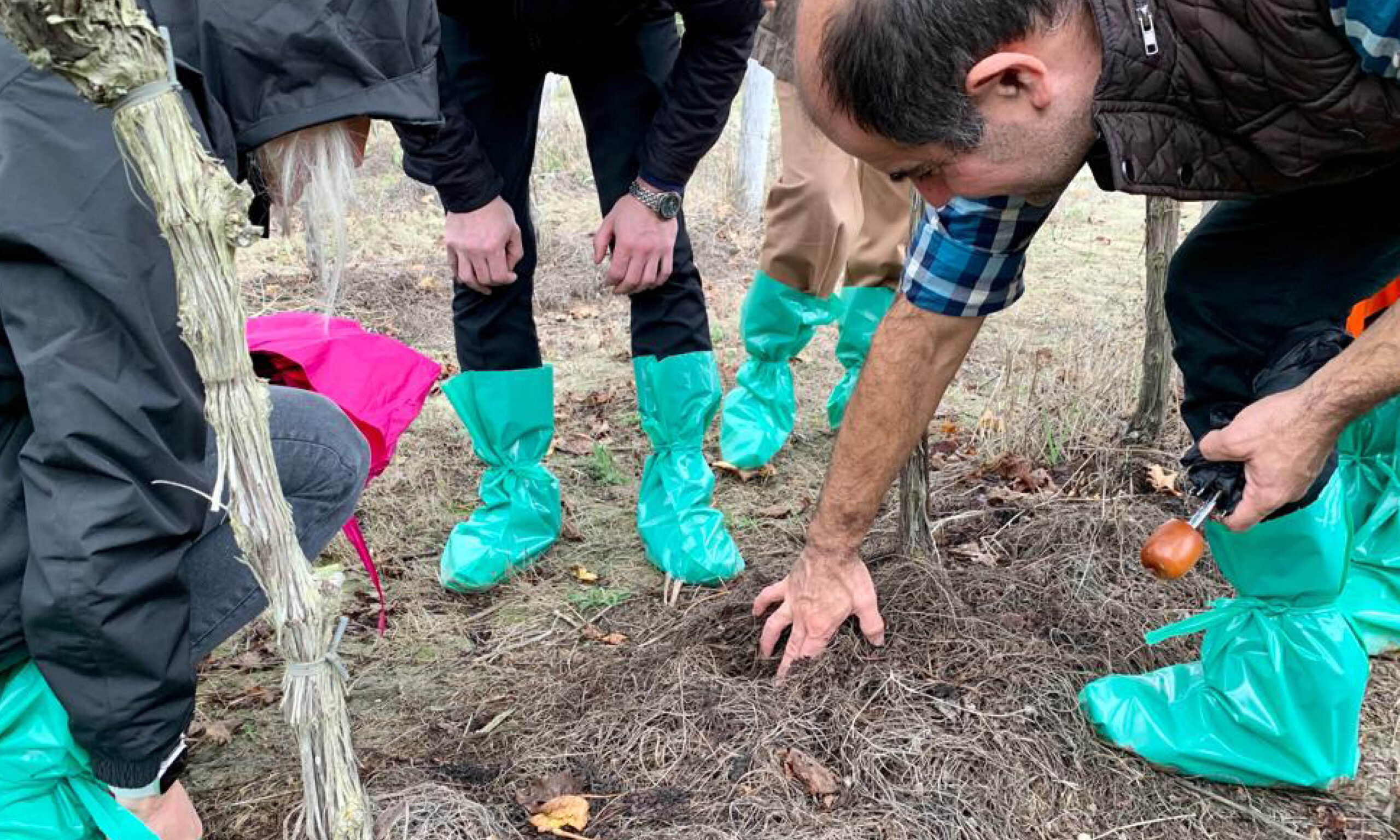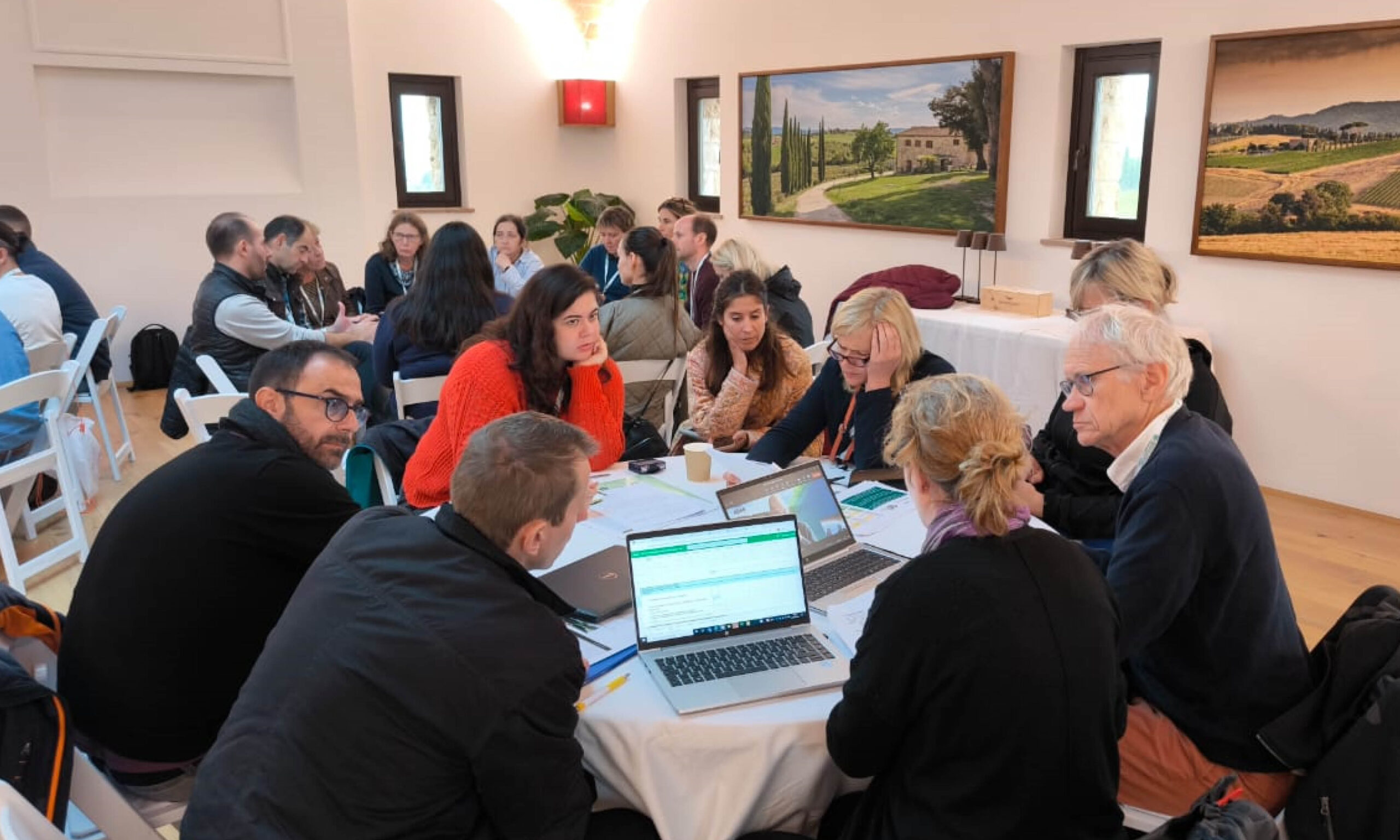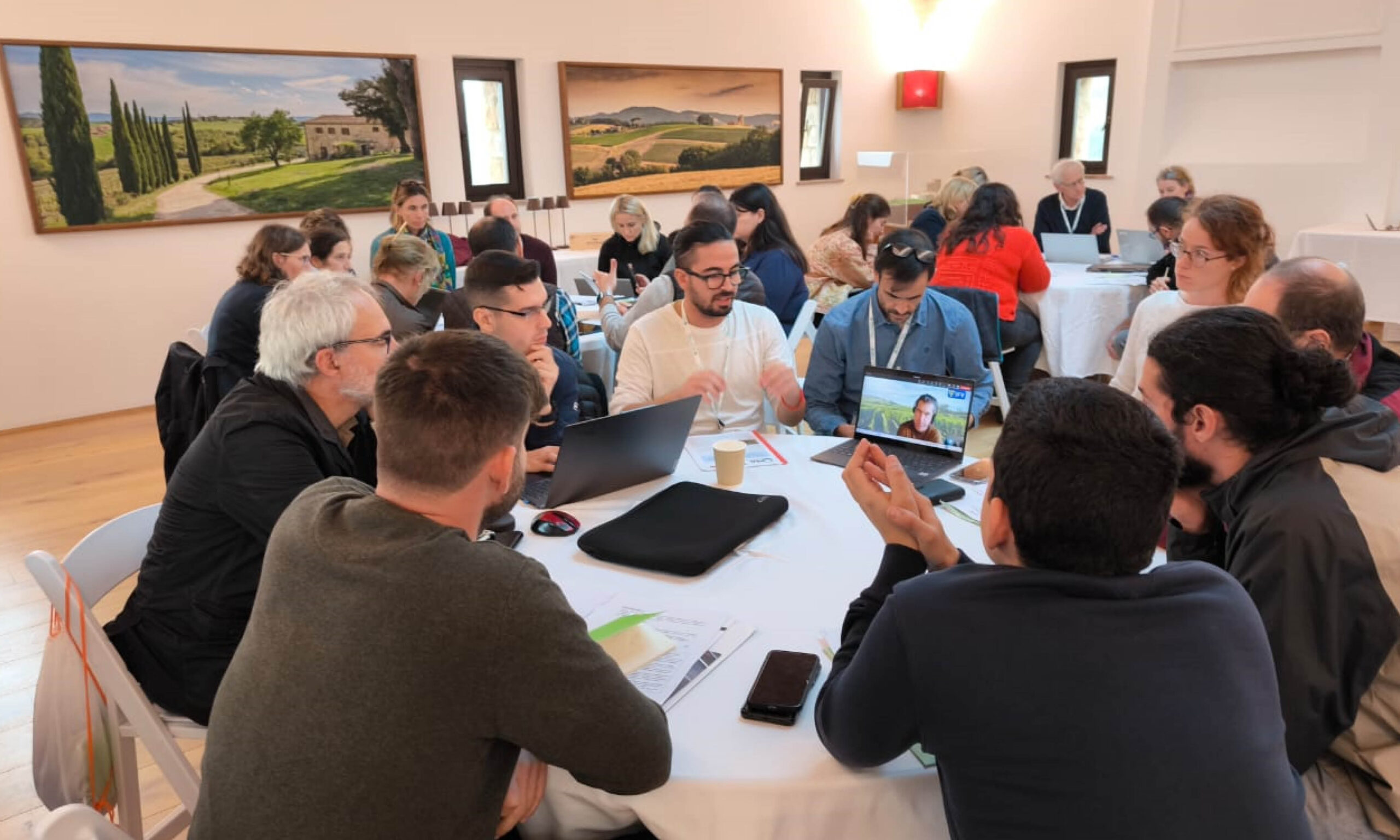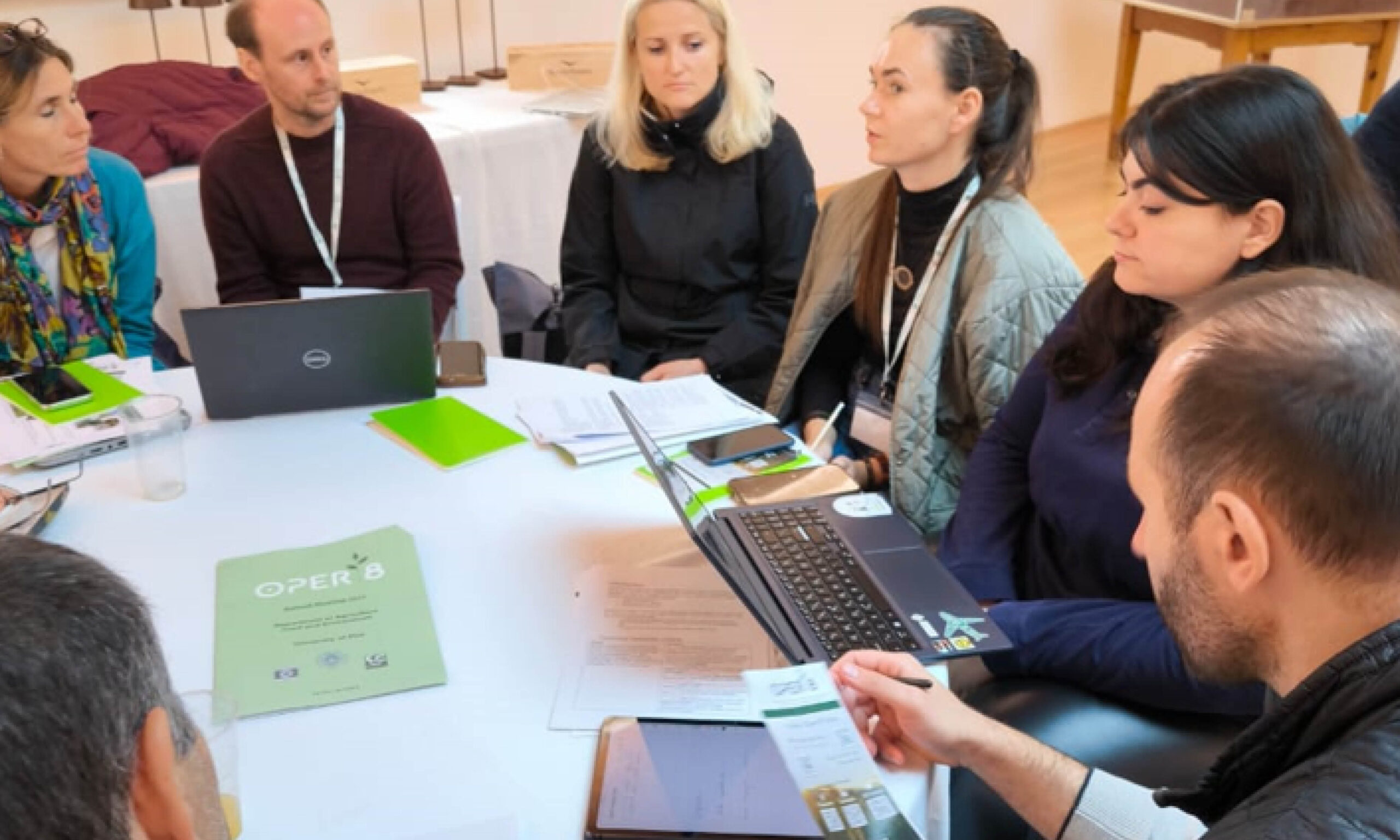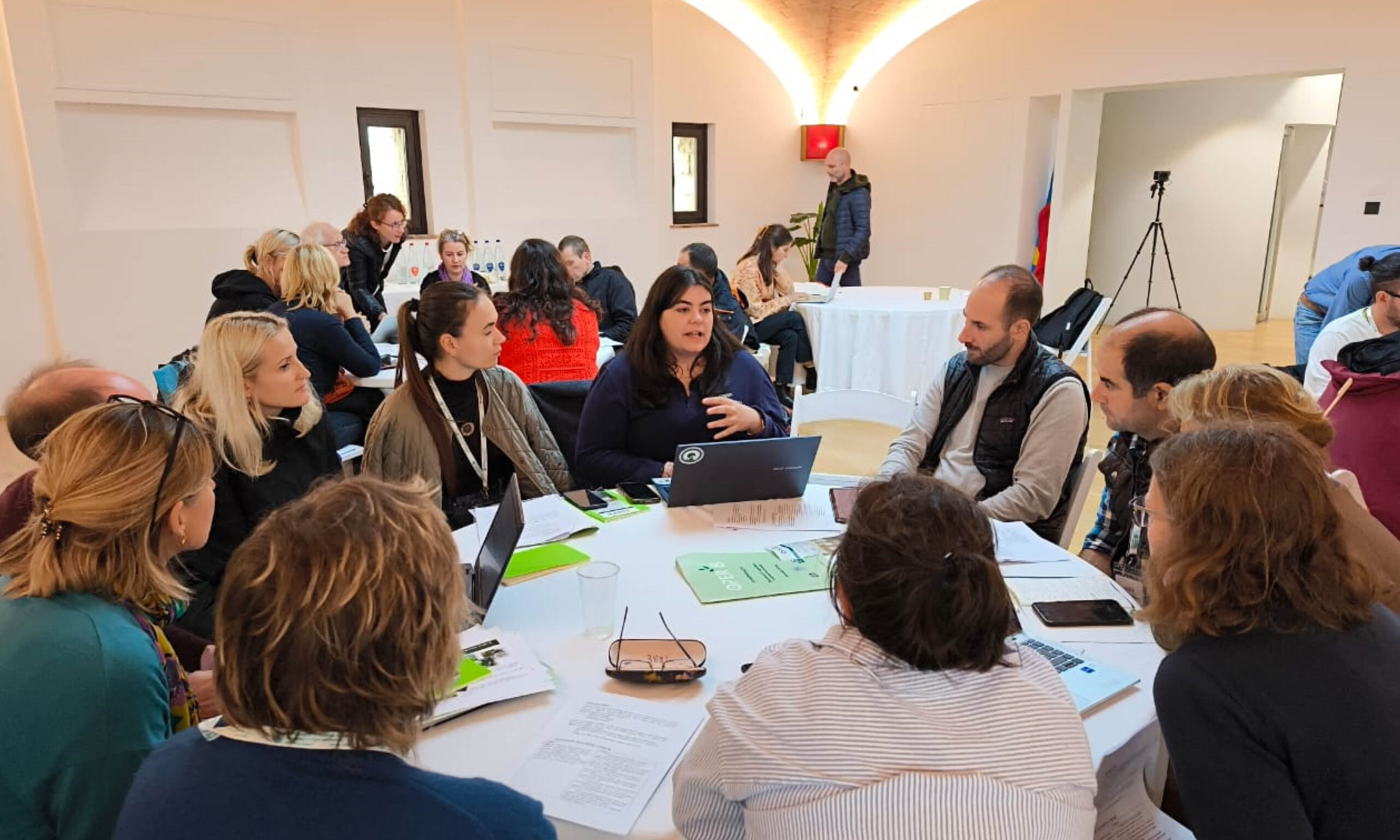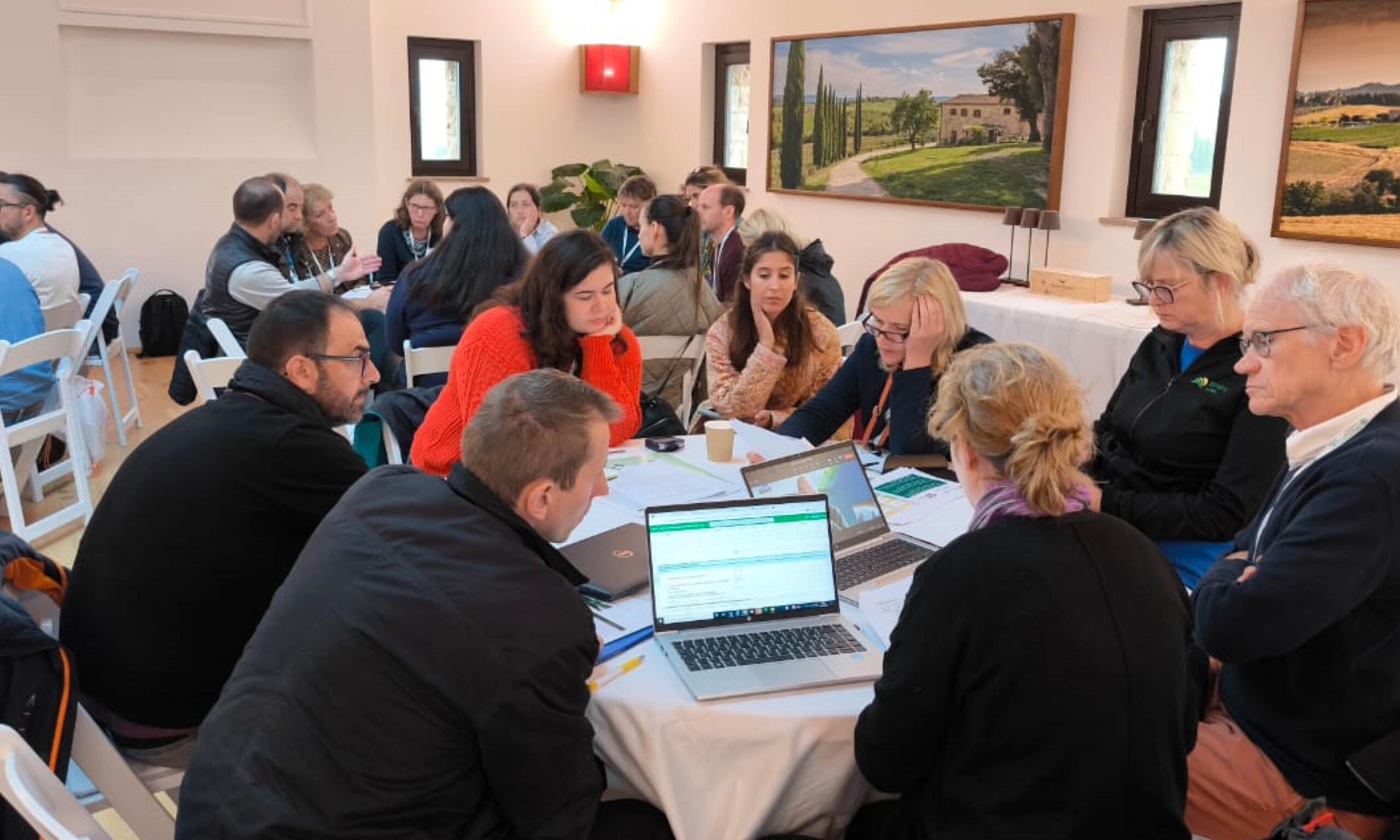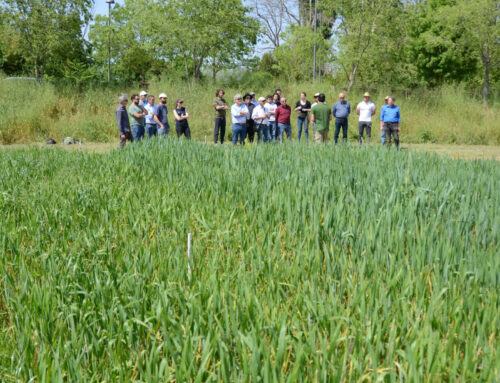On the 23rd and the 24th of October, the first annual partner meeting was held in Pisa, Italy. It was hosted by Daniele Antichi and his team at UNIPI.
Altogeher 30 partipants from the partner organisations attended the meeting and in addition 17 national experts from all particating countries took part. Most (13) very present in Italy while the rest were attending the workshop on the 24th on-line.
Day one – Work package discussion and field visit
On the first day, all workpackages in the project were presented and discussed at UNIPI and after that we went on the first field visit at the Catellani farm (see report below).
In the evening we had a much appreciated guided tour in Pisa city.
Day two – Field visit and evaluation with National Exports
Day two was dedicated to the second field visit at the Monterosola Farm (see below) and then the National Expert Panels were gathered for evaluation of the Oper-8 IWM solutions.
The work was conducted in three subgroups:
- Perenial crops
- Arable crops
- Field grown vegetables.
At this workshop, some selected OG-solutions were evaluated.
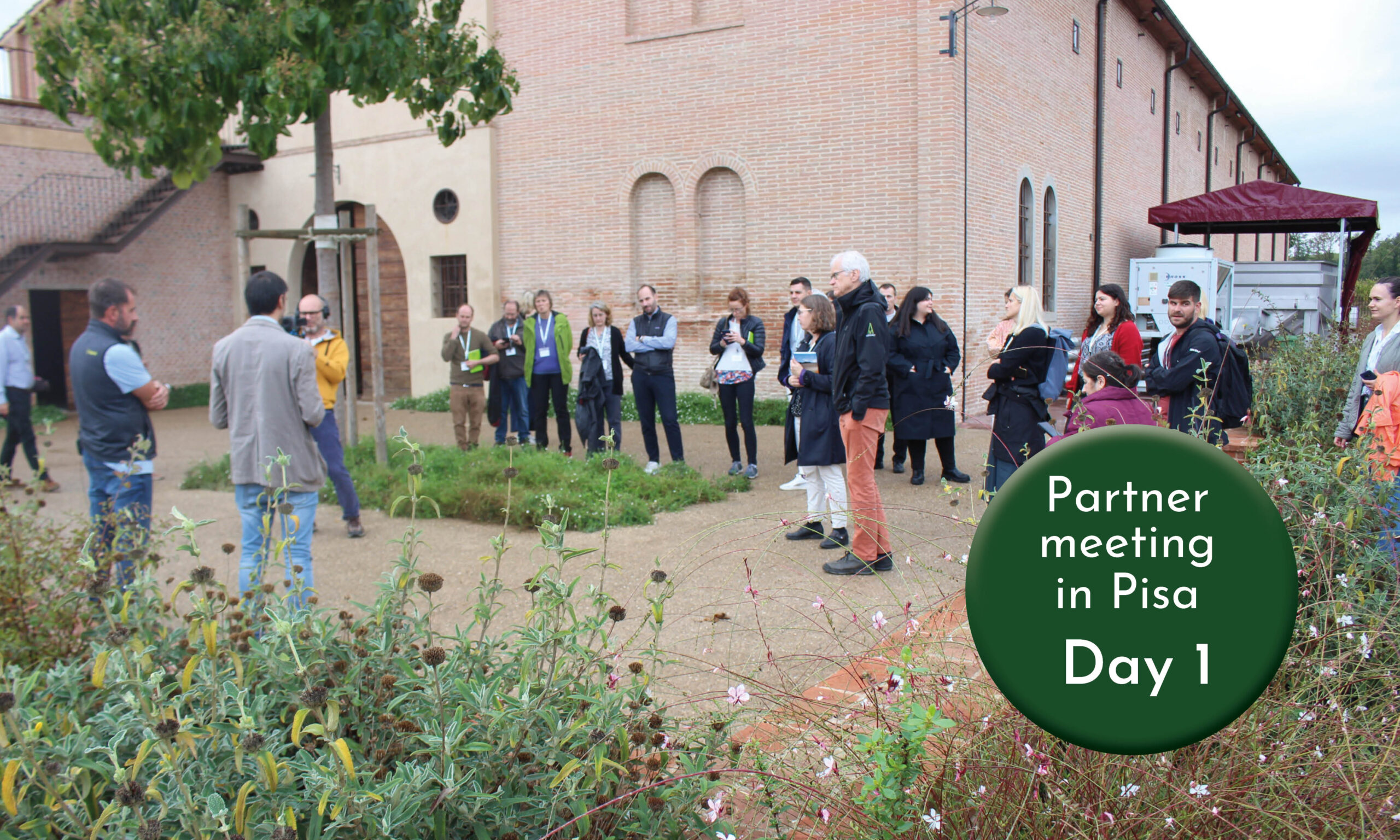
1st cross visit at Castellani farm in Peccioli, Pisa
Report written by Lorenzo Tramacere, PhD about the cross-visits in Pisa
During the first day of the project meeting in Pisa, all partners after the morning plenary session attended the first cross visit at Castellani farm, an organic winery farm where they were welcomed by Alessandro Moretto, the agronomist in charge.
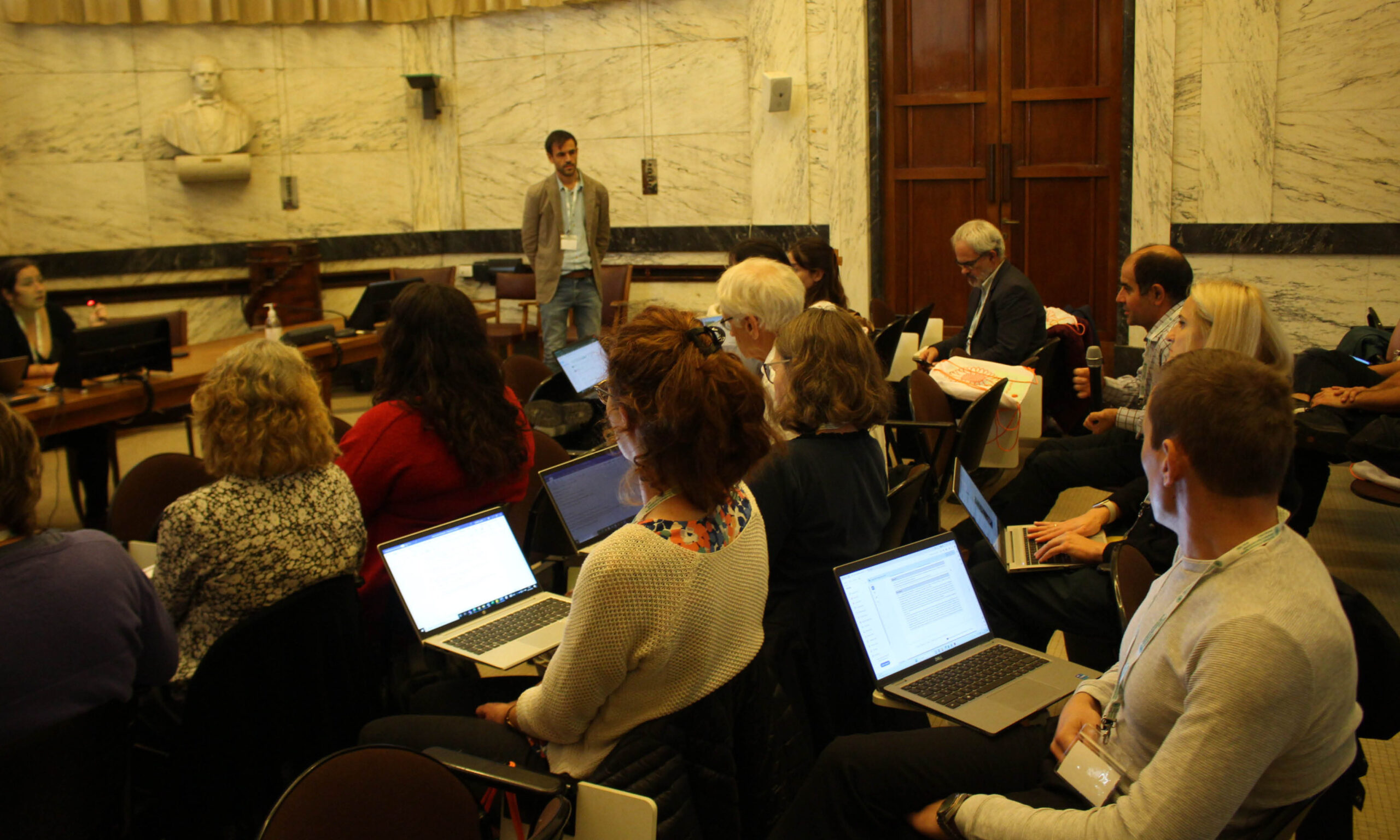
The duration of the event was 2 hours, during which attendees had the opportunity to listen Alessandro talking about his experience using alternative methods for weed control, such as cover crops and their mechanical devitalization.
More precisely, he manages the vine alternating rows with a permanent spontaneous ground cover, with rows sown in the fall with a cool-season mixture of cover crops, i.e., facelia (Phacelia tanacetifolia Benth), vetch (Vicia pannonica Crantz) and triticale (× Triticosecale).
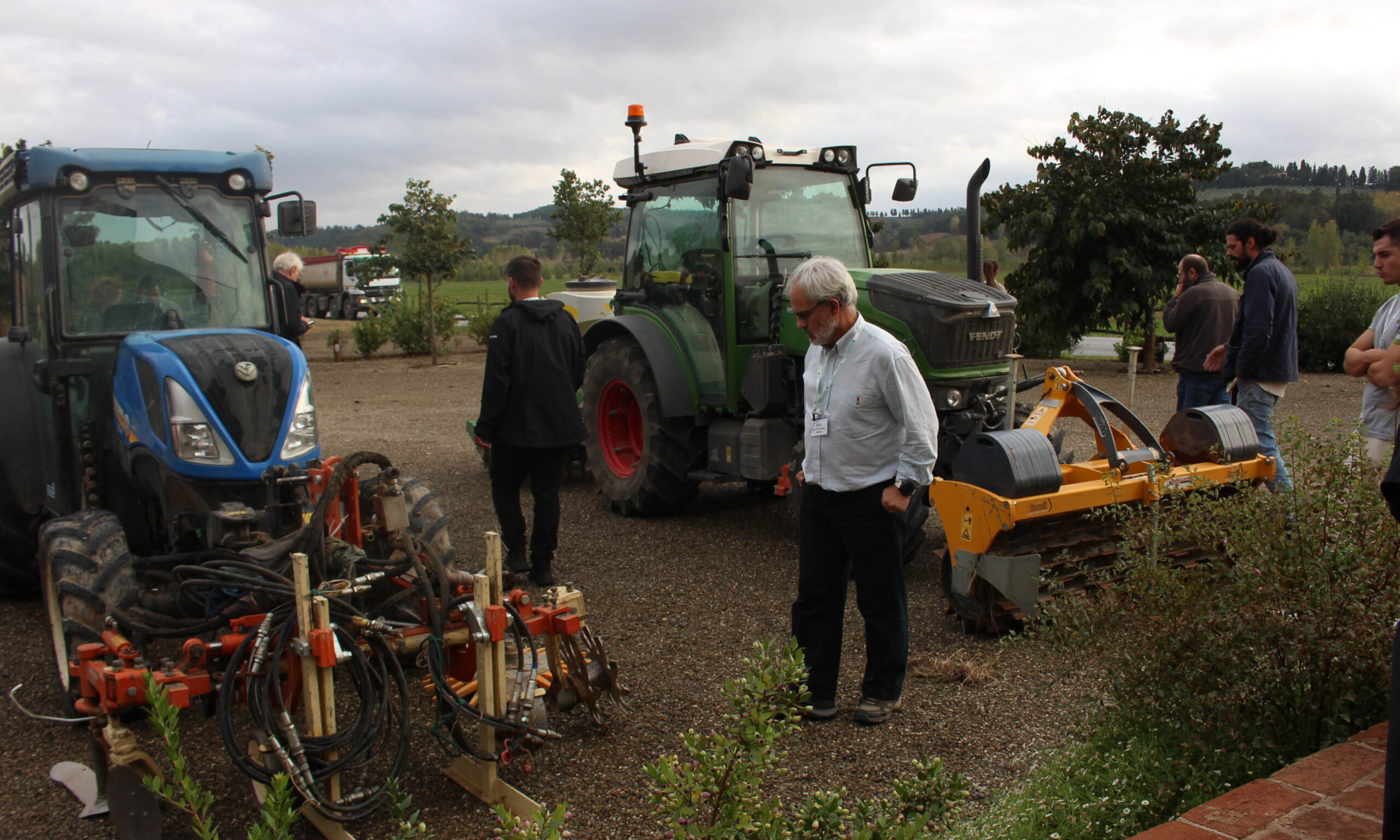
The mixture is kept growing during the winter not competing with the vines, and then in spring (May), when vetch and phacelia are flowered (at least 70%) and triticale is at the early milk stage, it is mechanically devitalized using a roller crimper, remaining on the ground during the summer as a dead mulch. The mulch allows to maintain a good humidity and a lower temperature of the soil, obtaining also a good weed suppression due the physical obstacles.
This interesting topic stimulated the curiosity of the attendees that lead a discussion, focused on especially the effects of this technique on the vine growth and diseases, but Alessandro confirmed that no increasing in diseases nor in competition were observed in his production context.
Afterwards, together with our expert in farm mechanization, prof. Christian Frasconi, the machines used in the farm for the management of the weeds and the cover crops were shown. Among these, the innovative roller crimper built by Dondi s.r.l., called “Rotovitis” that have the possibility to increase its weight adding ballasts to improve the devitalization of the most productive cover crops producing a large amount of biomass.
Other interesting machinery showed were the rollhacke and the finger weeder, tools developed for the under row weed management. In conclusion, dr. Lorenzo Gagliardi, a PhD student in farm mechanization at Department of Agriculture, Food and Environment, presented a power point concerning some trials that our research group carry on at Castellani farm using the innovative machinery presented before.
On this regard, the first trial reported was about different strategies for the under row weed control using combinations of the tools presented before (compared with traditional mechanical methods), while the second one regarded the use of the roller crimper “with” and “without” ballasts to evaluate the capacity of devitalization of the cover crops.
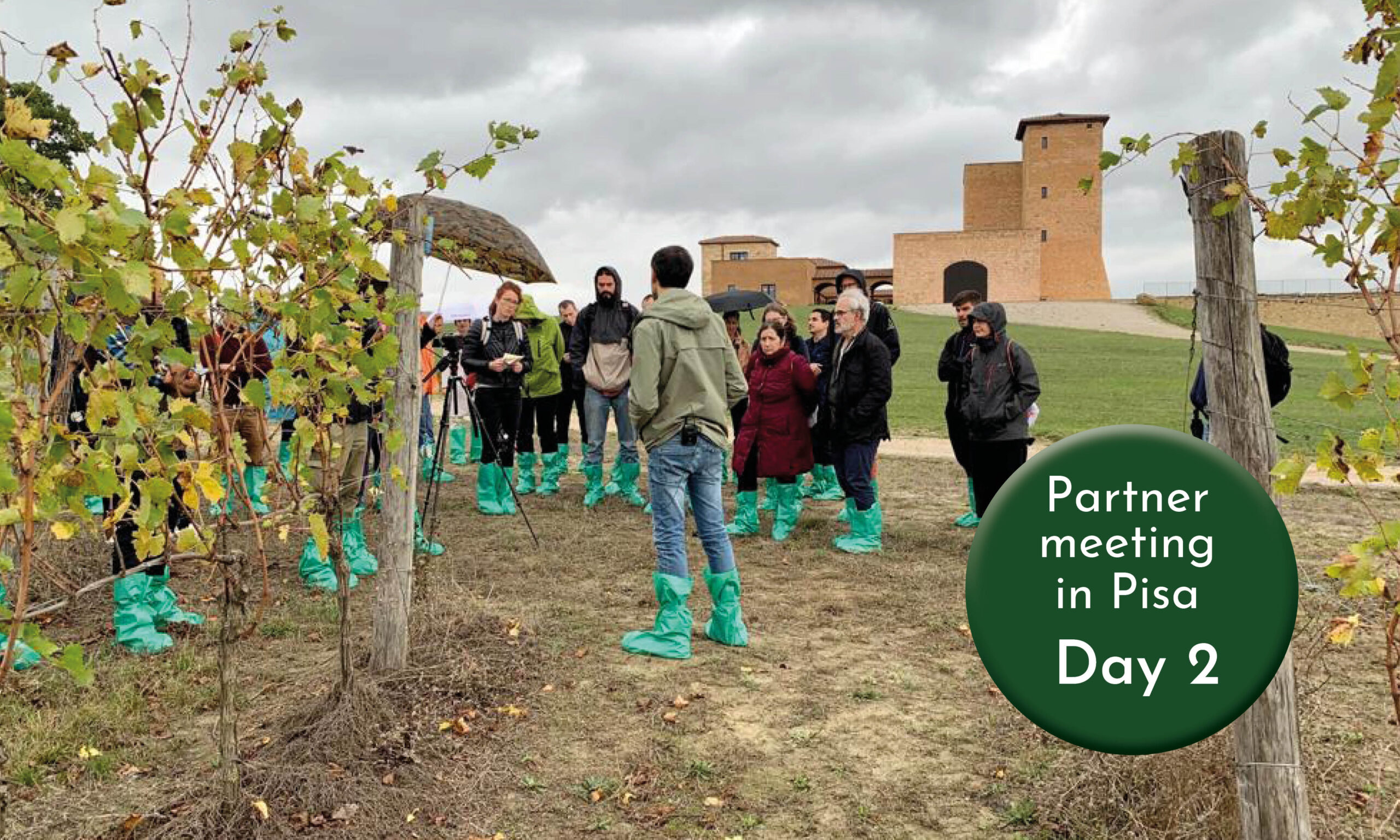
2nd cross visit at Monterosola farm in Volterra, Pisa
During the second day of the meeting, before the European Expert Panel Workshop, attendees visited the vine farm partner of the Italian O.G. “IO-CONCIV”. Michele Senesi (the agronomist of the farm) and the owner presented the farm and then professor Daniele Antichi showed the field trial that focused on the under row ground-cover through a self-reseeding subterranean clover crop.
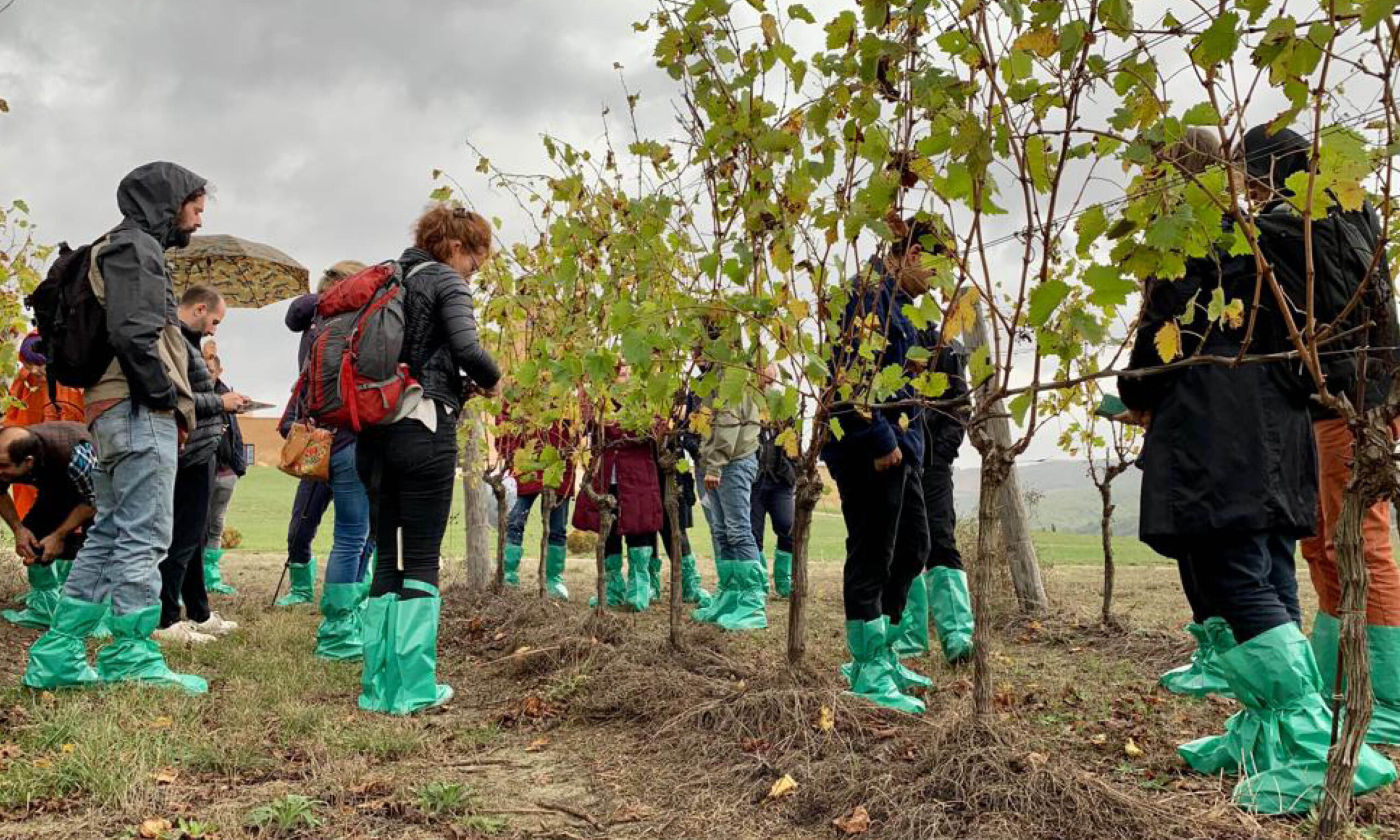
Daniele, talking about the research experience of the O.G. highlighted as the cover crops can deliver important agroecosystem services: e.g., improving soil fertility, reducing soil erosion and weed presence, increasing carbon, nitrogen input and biodiversity.
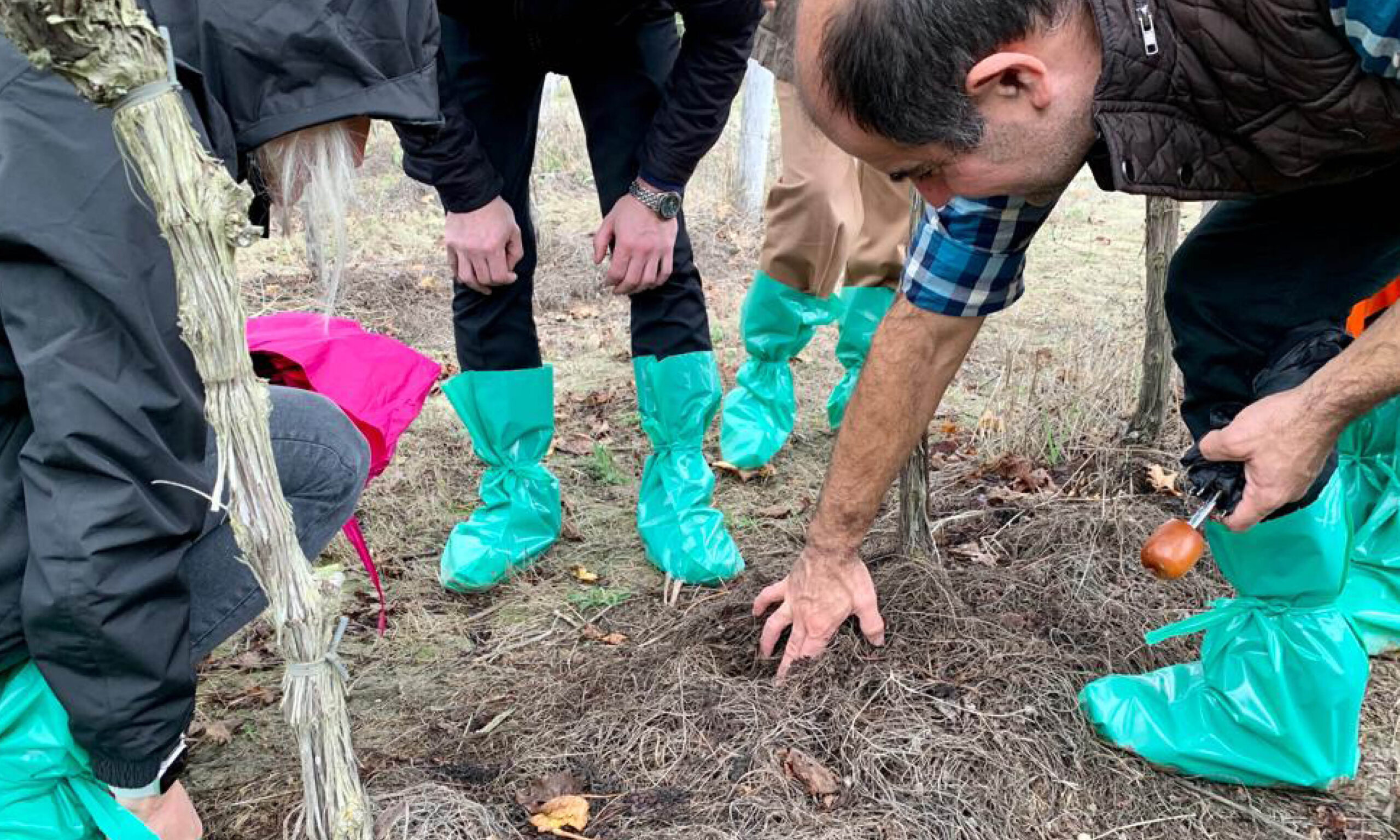
The innovation showed, implies the introduction of a self-residing cover crop under the row, coupled with a cover crop mixture sown on alternated rows, to reduce the tillage intensity. In fact, being the farm certified organic, herbicides aren’t the reference system.
Daniele detailed as the innovative process consists of sowing subterranean clover under the rows in autumn after the grape harvest (but in Monterosola conditions, also early winter was good), once every 3 or 4 years, and keeping it growing up until late spring-early summer, when the clover dies and releases the seeds directly into the soil by geocarpy.
The biomass of the clover will cover the soil in autumn, winter and spring as living mulch and in summer as dead mulch, thus not competing at all with vines for water and nutrients.
At the end of the summer, with the first rainfall, the clover seeds spontaneously germinate, and a new biological cycle will start under the rows, with benefits in terms of contrasting weed emergence and soil fertility improvement (i.e., by organic matter increase/conservation, reduced soil erosion and increased N availability).
In terms of constraints, Daniele explained as the more important was the mechanization of the seeding, indeed the farms involved in the O.G. have sown the cover by hand, although there are on the market some examples of seeder properly adjusted to seed under the row.
A general comment from Daniele to sum up the meeting:
“We are proud to have hosted the first project meeting of Oper8 in Pisa. Besides providing an excellent opportunity to summarize the activities carried out, it allowed us to understand how to continue them in an even more efficient and synergistic manner. Furthermore, it was highly stimulating to personally meet many of the partners and national experts from across Europe, enabling us to engage in networking.”
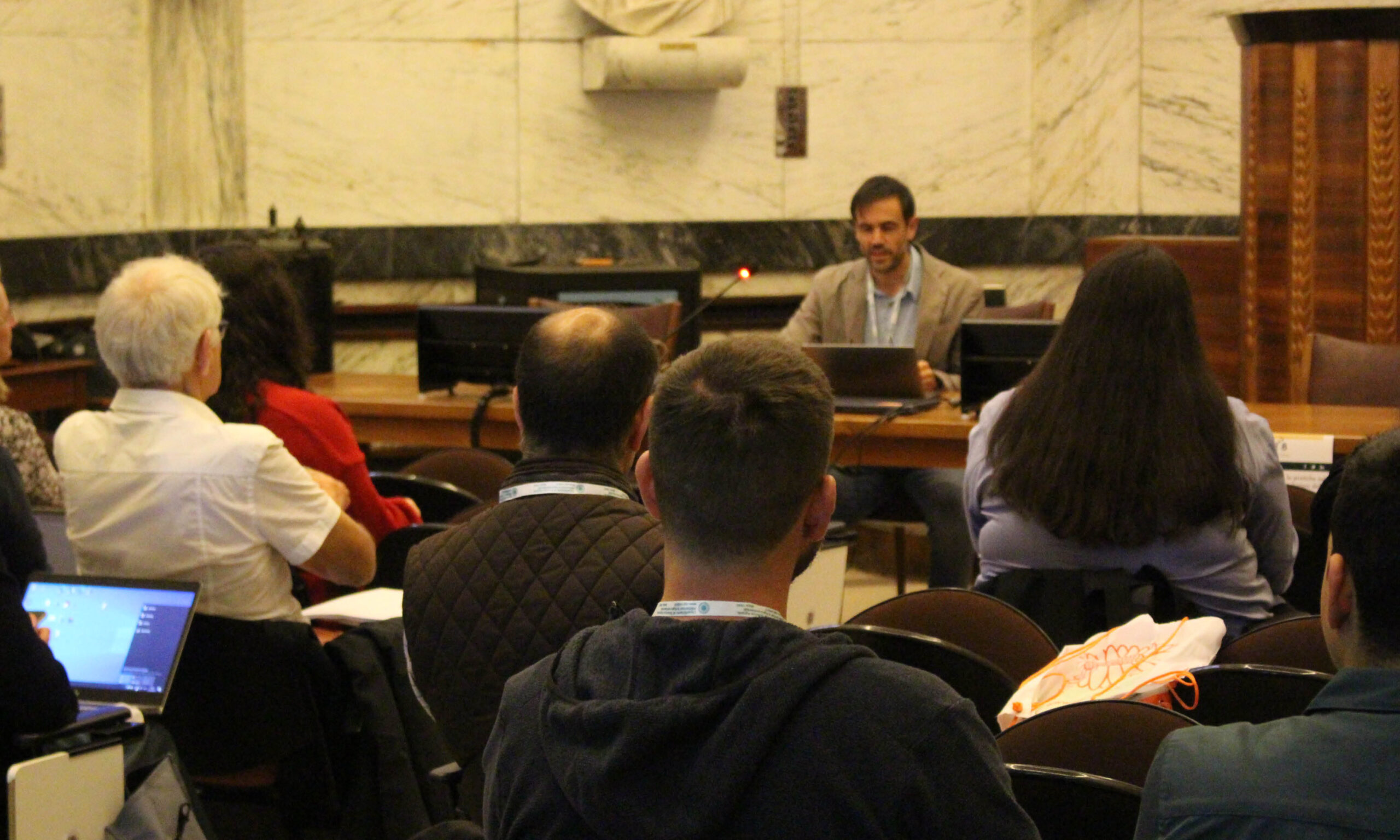
Photographer: Lorenzo Tramacere, PhD and Thomas Börjesson


